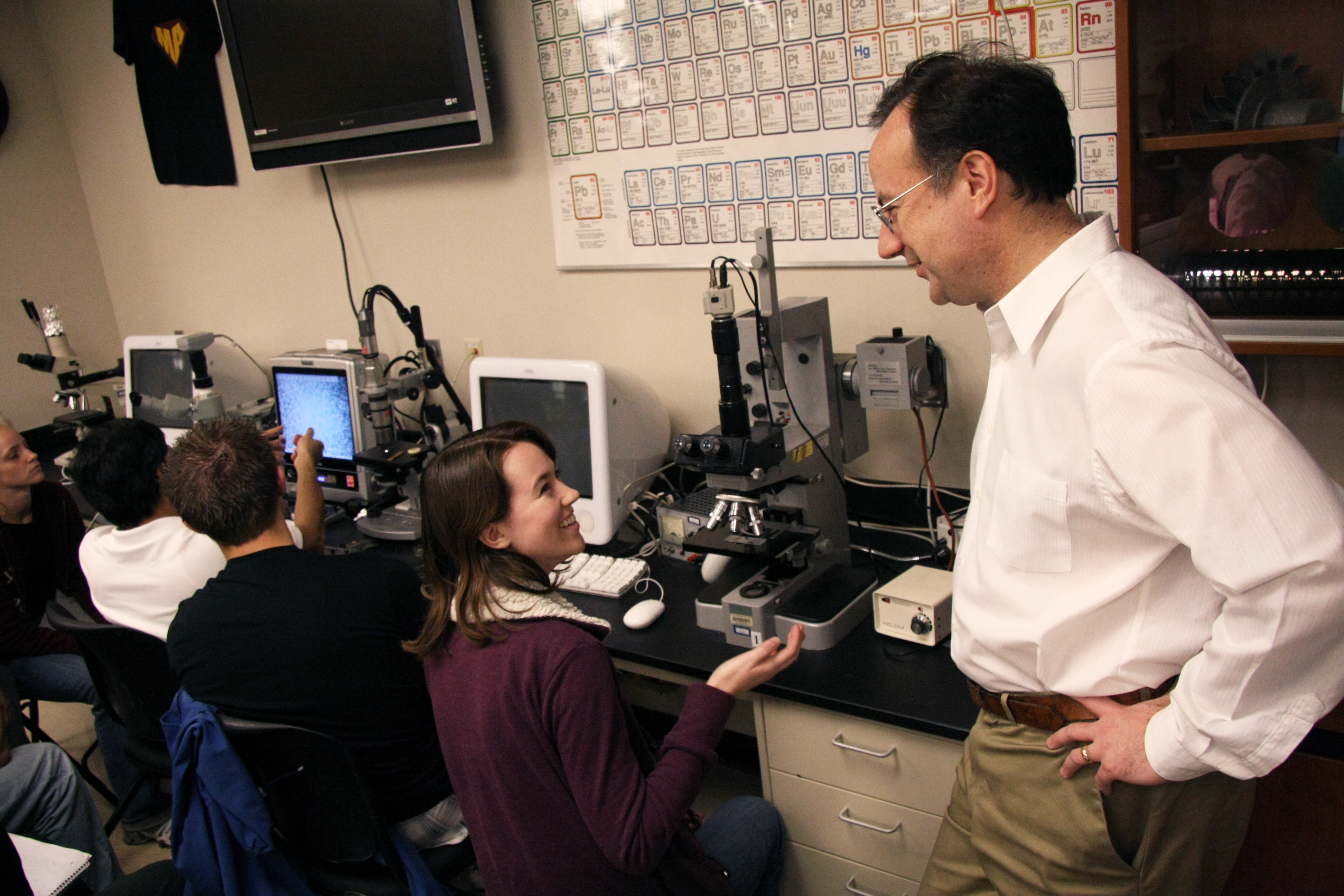Tips and tricks for talking to professors, classmates and more
Figuring out how and when to reach out to your professors and classmates can be a tricky maze to manage, especially if you’re the first in your family to go to college. How casual or proactive should you be? How should you address professors, deans and others?
Here are a few tips for how to communicate professionally and effectively with your professors, classmates and university administrators.

How to email your professors professionally
Each professor will say in their syllabus how they prefer to be contacted. Some will say email, some will say to message them on Canvas and some might say to leave them a voicemail. The most common method is email.
When you’re addressing your professor, your go-to start to the message should be something like this:
“Hello Professor _____,” or you can abbreviate to “Prof. _____.”
Once you’ve had a few conversations, a “Hi Prof. _____” is sufficient.
If a professor has a Ph.D., they probably prefer being addressed as “Dr. _____.”
Keep an eye out for how they sign emails or how they refer to themselves in class or in the syllabus and mirror that. And it can’t hurt to ask them how they prefer to be addressed. They’ll probably be happy you took the time to ask!
How to email other ASU employees
University administrators like deans should be addressed as “Dean _____” as a sign of respect for their position. It’s possible they could also be your professor, at which point “Professor____” is most likely fine. There are also positions like provost and of course, president.
When you’re emailing a dean, provost or president of the university, your email will probably go to an administrator in their office. You should still address the email formally to “Dean” or “Provost.”
For your academic or career advisers, you can usually have a more casual correspondence and address them by their first names. Look at how they sign their emails as an indicator of what’s appropriate. And again, it can’t hurt to ask.
Now that you know how to address them, don’t be afraid to reach out!
If you’re having a problem in class that wasn’t addressed in the syllabus, in class, on a class message board or by the teaching assistant, you can reach out to your professor via email. Make sure your email is concise, polite and that you say what class you’re in.
If you’re struggling with a personal, academic or financial issue, reach out to your dean of students and their office will connect you with the right resources.
And don’t be afraid to reach out to classmates
It can be scary if you don’t know anyone in your class, especially if it’s a huge lecture where you sit next to someone new each time.
Just remember, you’re all in the same position — trying to learn and trying to get a good grade. It’s a good idea to have at least one or two contacts in each class as a resource for questions on due dates, homework or class lessons you miss.
Ask the person next to you for their phone number or Facebook so you can ask each other about classwork. Chances are they’re happy to help and glad they’ll have you as a resource, too.
Make use of study sessions and office hours
A professor’s office hours are a time they reserve in their day or week for students to drop in to their office and ask questions about course material. Some professors prefer that you let them know ahead of time in case they have a meeting, but most will announce if they have a conflict with office hours.
If you have a problem you can’t quite figure out or if you missed class and can’t get caught up from lecture notes or a classmate, drop by your professor’s office hours and ask them for help. Professors will be happy to see you’re making the effort to catch up or ask for help if you’re struggling. Office hours are also a great way to get professional advice about your field, graduate programs and internships. Make sure to have a specific question or problem — don’t just drop in with no purpose, unless they say that’s OK.
If your professor says there are study sessions outside of class time, those sessions are a great time for extra learning and extra time to ask questions alongside other students, especially ahead of a big test or final exams. They’re often more informal, and the professor knows students there are especially eager to do well in that class, so they’re usually happy to spend extra time walking you through a complex problem or topic.
Reach out if you need help — with anything!
If you’re struggling in class (or classes) don’t be afraid to reach out to your professor, your adviser, your dean, your roommate, your classmate or your community assistant. You’re here to learn, so make the most of it!
If you’re struggling with a personal issue, ASU Counseling Services is a great resource. Your dean of students, community director or community assistant can also connect you with resources.
And if you’re struggling financially, reach out to your dean or the financial assistance office. They can walk you through your options.